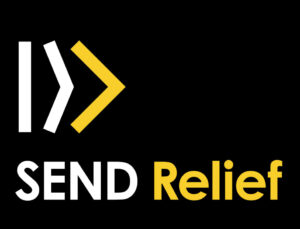Concerns about using church offering money to fund a response to the problem of sexual abuse in the Southern Baptist Convention seemed to disappear June 8 when $4 million was pledged to the cause.
Technically, some of that money still originated in the offering plates of SBC churches nationwide, but on the other hand, it was designated through budgeting processes for an effort to protect children and families.
 The unexpected gift will come from the Send Relief program, a joint ministry of the SBC North American Mission Board and International Mission Board. Send Relief is a compassionate ministry that includes disaster relief and social ministries that address refugees, human trafficking, adoption and foster care, clean water and medical aid.
The unexpected gift will come from the Send Relief program, a joint ministry of the SBC North American Mission Board and International Mission Board. Send Relief is a compassionate ministry that includes disaster relief and social ministries that address refugees, human trafficking, adoption and foster care, clean water and medical aid.
Last year, Send Relief operated with $17,282,157 given from NAMB and the IMB and $10,435,809 in private gifts.
Less than a week before messengers will gather in Anaheim, Calif., for the SBC annual meeting, where they will consider a set of proposed responses to an independent investigation into mishandling of sexual abuse cases, Send Relief President Bryant Wright announced the new funding plan. He was joined in a statement by NAMB President Kevin Ezell and IMB President Paul Chitwood.
According to their joint statement, Send Relief will give $3 million to fund the proposed Sexual Abuse Task Force recommendations for sexual abuse reform and an additional $1 million to establish a survivor care fund to provide trauma care for survivors and trauma training for pastors.
The $1 million will come from Send Relief funds already designated to protect children and families, the statement said. And the $3 million will come “from Send Relief undesignated funds, not from Cooperative Program donations or gifts to the Annie Armstrong Easter Offering and Lottie Moon Christmas Offering.”
This news nullified an action taken last week by the SBC Executive Committee, which voted to ask convention messengers to approve spending general offering funds for the abuse response. That would have been a major shift, as expenses to date have been covered from limited designated funds held by the Executive Committee.
In response to a question about what biblical basis there is for responding to claims of sexual abuse, the task force offers 62 Bible verses.
This potentially will blunt some of the criticism of the sexual abuse response, but some critics are still picking at other side issues, including a tweet from the independent investigatory firm, Guidepost Solutions, in support of LGBTQ persons. Also on June 8, leaders of the Tennessee Baptist Convention picked up on the tweet and called on the SBC to break all ties with Guidepost, which is administering an abuse hotline.
Meanwhile, the Sexual Abuse Task Force has revised the recommendations it will present to the convention next week, taking down one set of recommendations posted June 1 and then posting a revised set June 8. Many of those recommendations merely ask other Baptist entities to consider taking some action; only two direct actions will be put before messengers for a vote — creation of an Abuse Reform Implementation Task Force and creation of a “Ministry Check” website where churches could check for potential records of abuse before hiring staff members.
The task force also released a set of Frequently Asked Questions. Within that document, the task force addresses another criticism of the Guidepost report — that it contained no scriptural reference. In response to a question about what biblical basis there is for responding to claims of sexual abuse, the task force offers 62 Bible verses.
Related articles:
Some action items emerge from SBC sexual abuse crisis, but is it too little and too slow?
Guidepost report documents pattern of ignoring, denying and deflecting on sexual abuse claims in SBC
What’s next for recommendations and reforms in SBC sexual abuse study?
SBC establishes hotline to receive reports of sexual abuse in churches
Faced with damning sexual abuse investigation, some in SBC seek to discredit the investigators


